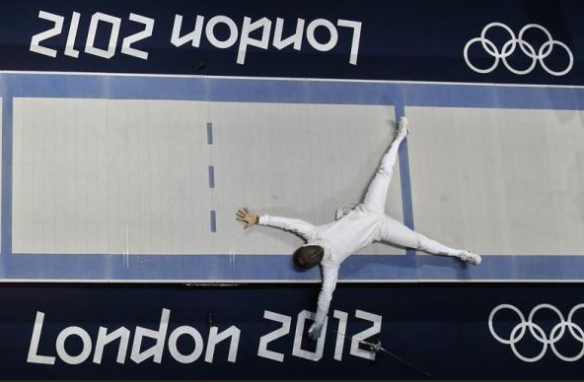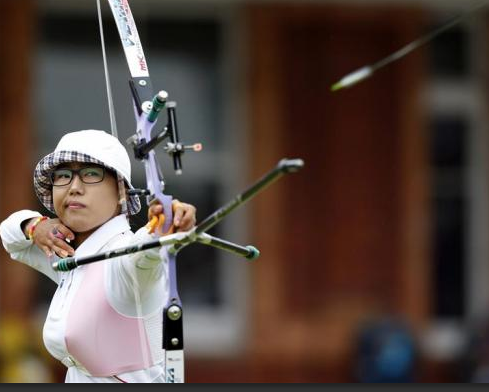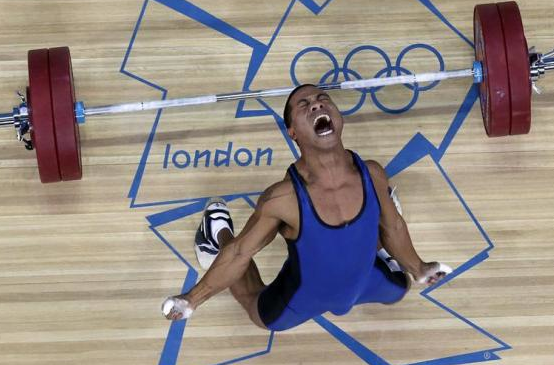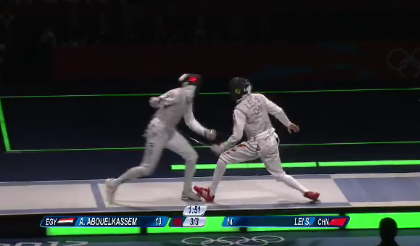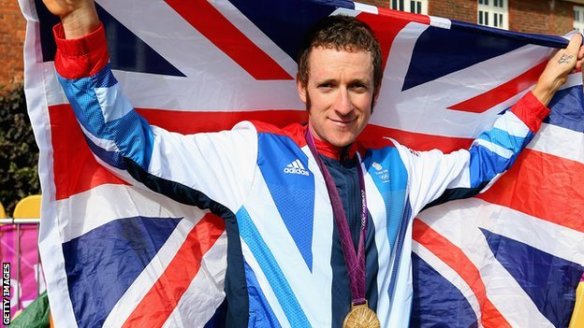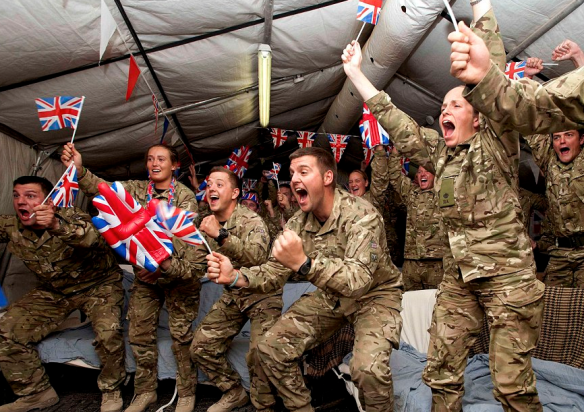“To the victor the spoils” – but not always the power to charm.
As they hand out the gold medals at the London 2012 Olympics, it’s easy to see that magnetism and charisma don’t always belong naturally to those who become the world’s fastest, strongest, or highest.
London’s enthusiastic crowds may be roaring loudest for the winners on the podium, but their hearts have opened to those athletes showing gallantry, grace, humour and special empathy, even to those come nowhere in the medal stakes.
Playing to win is about much more than just winning. So in the Badminton tournament, the calculated cynicism shown by eight competitors from China, Indonesia and Korea (who all deliberately tried to lose preliminary matches to get a better position in the playoffs) was met with boos, derision — and expulsion from the tournament.
The Olympic Games aren’t just a showplace of physical prowess: they represent an extraordinary laboratory of human behaviour, and the place where we can see in every stadium and on every screen that most valuable but least understood of social characteristics: human charisma. London 2012 is the world’s leadership development seminar par excellence. At this most emotional of Games, we can see close up what kind of prowess it takes to win medals, but also what special power it takes to win hearts and minds in the most demanding of circumstances. This sporting narrative, as it were, is the universal form of leadership storytelling for our times.
At its simply, the reason the Olympic Games are called games, is that the primary job of athletes is to entertain us.
 In an extraordinary nine-second piece of performance art that rivalled a Shakespeare tragedy, a Jason Bourne movie, a classical ballet and a Woody Allen comedy, Jamaican sprinters Usain Bolt and Yohan Blake wowed the world by taking gold and silver in a men’s 100 metre race which through sheer global gigawattage took the games to a new level. Bolt, the chameleon comedian, barely seemed to break a sweat until it was time to start clowning for the cameras. But right after he crossed the tape he made sure the first people he connected with were his delirious fans. Likewise normally steely Sir Chris Hoy, now Britain’s most decorated Olympian ever with six golds now ending his career, stood on the podium for a tear-soaked farewell to track cycling after winning the men’s keirin.
In an extraordinary nine-second piece of performance art that rivalled a Shakespeare tragedy, a Jason Bourne movie, a classical ballet and a Woody Allen comedy, Jamaican sprinters Usain Bolt and Yohan Blake wowed the world by taking gold and silver in a men’s 100 metre race which through sheer global gigawattage took the games to a new level. Bolt, the chameleon comedian, barely seemed to break a sweat until it was time to start clowning for the cameras. But right after he crossed the tape he made sure the first people he connected with were his delirious fans. Likewise normally steely Sir Chris Hoy, now Britain’s most decorated Olympian ever with six golds now ending his career, stood on the podium for a tear-soaked farewell to track cycling after winning the men’s keirin.
These days, showing your emotions and engaging your followers is part of what it takes to be a champion athlete. These days, that means a lot more than chutzpah, mojo, or in-you-face swagger. Yes, the 100 metres calls for as much pre-race aggression and posturing as a Mohammed Ali prize fight. But it calls for deep empathy with the fans too.
In fact the Olympic Games provide an ideal canvas on which to sketch the principles of a new field of study: the analysis and mapping of human charisma, and its application by those who need to harness the power of engaging leadership in every field of endeavour. Charisma is a leadership attribute and a character force that can be managed and developed. By learning how athletes excel – not just in their given field, but also in the task of winning hearts and minds – we can harness the principles of emotional communication to help practitioners in other fields of endeavour to persuade, persuade and inspire other people. Because the best news of all that the athletes bring us is that charisma isn’t a god-given attribute that some enjoy from birth — it’s a transferrable skill that we can all learn, once we know the code.
It’s no coincidence, perhaps that over last two decades, one of the fast-growing forms of personal performance enhancement in business has been the coaching industry. Almost all the techniques used today in executive business coaching still derive from sport coaching. What coaching too often overlooks, in driving athletes forward to perform, and driving executives forward to perform, is that both the medals podium and the CEO’s boardroom seat are precarious places for those who possess no charisma and no magnetic power of empathy.
Now, we believe, the time has come to widen the coaching envelope to embrace charisma training. Time after time, we’ve seen CEOs coached to the eyeballs, behaving with the same chilly fanaticism of North Korean athletes winning gold for “Dear Leader” Kim Jong Un, but losing the battle to retain the trust and loyalty of their own employees and stakeholders.
So I hope you’ll read on and see how the London 2012 Games provide a thrilling introduction to the Seven Dimensions of Charisma, the model we use to train business people to become truly effective communicators.
Away from the blue riband events of track and field or swimming, we can see charisma in action most clearly. Whether it’s a pair of schoolteachers from Mauritius, pitted in their first-ever beach volleyball match against the steely professionalism of the top-seeded Brazilian women’s pair; or the wild gallantry of an Egyptian foil fencer doing battle against his Chinese adversary, or a lion-like young archer from Kazakstan duelling with a wily Japanese veteran, we can see that losers can be winners too.
Of course, the most prized of global athletes take gold not just on the podium, but in the charisma stakes too. Michael Phelps, the most decorated of all Olympians and an all-American hero, showed his extraordinary power in the charisma stakes when he took the silver medal in the men’s 200 meter butterfly behind 20 year-old South African Chad le Clos.
Phelps, instead of sulking at this unaccustomed defeat, reacted with unbelievable grace, leading the rookie South African who idolises the American swimmer by the arm by the poolside to show him how to take a lap of honour.
But the most astonishing act of charm came not from the South African athlete himself, but from his father, who gave an interview to the BBC that transmitted pure delight and charisma by the bucketload. The older Le Clos, a tubby, bluff old voortrekker with a barely understandable accent, achieved in a few seconds what professional communicators dream of: encapsulating the Olympic spirit with a crackling power of empathy, beliefs and values.
It’s possible, of course, to take Olympian gold and simultaneously pile up prizes in the charisma stakes by the quirkiest of methods. Bradley Wiggins, the British cyclist who won gold in the men’s time trials just nine days after he won the Tour de France, is a master of laconic behaviour with a sense of humour as flat as his London vowels.
Immediately after his victory, “Wiggo” got back on his bike to pedal away in search of his wife and family, ignoring the cameras and the fanfare. No matter: the whole of the UK has gone mad for its most decorated Olympian, whose trade-mark sideburns have spawned acres of newsprint commentary. Wiggo’s charismatic style derives from his blend of open-hearted intimacy and dry modesty, matched by unflagging values and strong belief.
Certainly, the Games are about revealing the raw emotions of athletes who have undergone years of pain for a single moment of glory. But those athletes able to command true charisma are also those best able to interpret their personal victories in a group context. being part of the team, recognising the contributions of family, community and the wider clan.
So when Britons Helen Glover and Heather Stanning won rowing gold in the 2000 meters women’s pairs, the United Kingdom took them to its heart not only because they won the first Team GB gold of the Games, but because Stanning, 27, a captain in the British Army, generously involved her forces colleagues stationed in Afghanistan, in their victory. They were given time out from war-fighting to watch the Games.
An instinctive understanding of tribal or group dynamics, and the ability to interact with social customs, is a crucial attribute of successful team-builders who show all the dimensions of true charisma.
So what can these examples — and too many more to mention still unfolding at the Games teach us about the workings of charisma?
And what exactly are the Seven Dimensions of Charisma mentioned above? The Seven Dimensions model we’ve developed is closely related to other classic patterns analysing the vital force shared by successful humans — but our own focus is on the way that vitality is communicated in a balanced and integrated fashion.
Athletes start with one enormous advantage over the rest of us. To qualify for the Games — let alone get close to a final event — they must already completely dominate three of the Seven Dimensions of Charisma in classic form. These are:
1. Self-esteem. To achieve world class performance, athletes must excel in the “Three A’s.” These are Ambition, Achievement and Admiration. No sporting hero became a hero himself or herself, except by walking in the footsteps of another achiever. High levels of self-actualisation though confidence and independence, are as vital for charisma as for medal-winning.
2. Energy. Athletes don’t just need huge amounts of physical energy to put themselves through physical barriers. They need the “DDV combination” as well. Drive, Dynamism and Vitality are the attributes of those able to display positive aggression and assertiveness that displays contagious passion and commitment. The pumping arm of a tennis champion, the high fives and embraces of team players are all signs of the Energy Dimension.
3. Belief. During the after-podium interview, athlete after victorious athlete describes the dark mornings of endless training, the bouts of injury and surgical operations, the years of exile from family, friends and career. The struggles with coaches, the engaging with personal demons of failure and self-doubt. What propels them forward is the power to articulate dreams that nourish our spiritual needs. To create new and seemingly-impossible realities, rather than live a humdrum destiny, we need to transmit an energy of intent to create new realities of our own choosing. This belief element of charisma is what makes expel follow leaders into an unknown and uncertain future.
Armed with these three Dimensions, you can take a medal. But there is a lot more. And the principle of balance and roundedness of personality holds that to be truly charismatic, leaders need to exhibit other values of emotional communication.
4. Empathy. Emotional intelligence (EQ) and open-hearted intimacy creates powerful bonds of mutual understanding with interlocutors. Athletes able to share their victory and explain how the “gave it everything” for their supporters, will reap not just medals, but devotion. Empathy isn’t only a logical “exchange of benefits” between the author and interlocutors, it’s a complicity of feeling that stimulates mass endorphin release and the warmest of feelings we associate with Olympic victory.
5. Group Behaviour. Interaction with social customs demands excellence in what we call the “Three Cs” — Clan, Community or Company. An instinctive understating of tribal or group dynamics is essential even for athletes engaged in solo activities. For team players — especially those who activity may involve one sacrificing his personal ambitions for the group’s benefit – Group Behaviour is essential prerequisite for winning a place at the Games.
6. Values. Playing games is a symbolic act with huge social significance. Our global society is built around game playing, and in turn, games are built on values. We also call these traditions the rules of the game. Commitment to principles and service for others is the road to generating trust. And charisma without trustworthiness (as we know from our experience of dangerous dictators) is a toxic combination. The ability to project a strong sense of values in turn transits a sense of security and appropriateness for the environment. Britain wanted and trusted Sebastian Coe to lead the London 2012 Olympics because of the values he projects and the trust he has accumulated over years on the track, in the boardroom, and through his own charismatic communication style.
7. Vision. When Rocker Brian May belted out his Queen anthem from atop a London bus at the closing ceremony of the 2008 Beijing Games, it seem impossible that newly-poor Britain could ever match the awesome financial firepower and machine-like organisation of the Chinese games. Nobody knew how film director Danny Boyle could match the Chinese opening ceremony, with just a fraction of the 2008 budget. And yet he delivered a piece that was quirky, bonkers, hip to the media age, forward-looking, celebratory, comic, self-deprecatory, and downright visionary, offering a view of Britishness from a parachuting James Bond to JK Rowling, Mary Poppins, Brunel and way behind that has blown the dust off the British brand for a whole generation. Having vision, communicating vision, is the golden key to charisma.The ability to plan, build and be a true verbal architect of future possibilities, is the charismatic power to show us all what lies over the horizon.
Who, for instance, can ever forget the image of the British Queen leaping from a helicopter to launch the games? Now that’s a piece of right royal charisma. Understanding the power of charisma in the performance of athletes we admire so much as they compete in Games is just the start. Next, we can discover how to harness these gifts for ourselves.
Richard House



